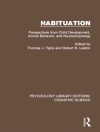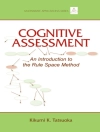‘This book argues convincingly that children’s cultural differences need to be recognized for any accurate understanding of their development. Pointing out the need for additional and more effectively designed research, Harris and Graham provide a valuable foundation for further investigations. This nonpolemic book should be in all libraries, filling an unfortunate gap. Highly recommended.’– Choice: Current Reviews for Academic Libraries
This major new textbook introduces students to issues that have an impact on the lives of African American children but have typically been ignored (or inadequately discussed) in mainstream child development textbooks. The authors hope to familiarize students with a sampling of research that moves beyond a deficit view of the development of the African American child while stimulating critical thinking about future directions for research on African American children and their families.
The book is designed to be student friendly–with each chapter presenting an overview of the material covered as well as an ‘Insider’s Voice’ (which offers a personal story or viewpoint about the issues discussed in the chapter). Each chapter goes on to feature a dialogue of current biological, environmental, constructivist, and cultural-contextual theories) as well as suggestions for additional reading, videos, websites, and questions to guide critical thinking.
สารบัญ
‘
Preface
List of Figures and Tables
Overview of the Chapter
Section One: Population Statistics on African American Children
Section Two: Living Arrangements of African American Children
Section Three: Economic Conditions of African American Children and their Families
Perspectives on Demographics and African American Children
Suggestions for Additional Readings
Overview of the Chapter: The Importance of Studying Developmental Research Methods
Insider’s Voice – The Need for More Research on African American Children
Section One: Problems: Methodological Constraints in Research Designs
Insider’s Voice: Where Have We Gone Wrong?
Section Two: Conducting Culturally Relevant Research with African American Children
The Need for Culturally Sensitive Research with African American Children
Conceptual Frameworks and Interdisciplinarity
The Role of Context in African American Child Development
The Relationship to African American Child Development and Central Characteristics in Developmental Psychology
Ethical Considerations with African American Child Participants
Section Three: Theories
Vygotsky’s Sociocultural Theory
Bronfenbrenner’s Bioecological Systems Theory
Integrative Conceptual Model of Child Development
Perspectives on Research and Theories
Chapter Summary
Additional Readings
Overview of the Chapter
Section One: Heath Challenges
Infant Mortality
Maternal Risk Factors
Initiatives Designed to Reduce African American Infant Mortality Rates
Physical Challenges Beyond Infancy
AIDS
Treatment of AIDS
Insider’s Voice: Plumbism
Treatment of Plumbism
Insider’s Voice– Sickle Cell Anemia
Treatment of Sickle Cell Anemia
Asthma
Treatment of Asthma
Obesity
Treatment of Obesity
Section Two: Access to Health Care
Perspectives on the Health Status of African American Children
Chapter Summary
Key Terms
Suggestions for Additional Readings
Overview of the Chapter
Section One: Mental Health Issues
Insider’s Voice – African American Children and Mental Health Issues
Risk Factors
Assessment and Diagnosis
Treatment of Mental Health Disorders
Section Two: Racial Identity
Perspectives on Mental Health and Racial Identity
Chapter Summary
Suggestions for Additional Readings
Section One: School Desegregation and African American Children
Insider’s Voice – Resegregation of American’s Public Schools
Desegregation and African American Children
Section Two: Schools That ”Work” For African American Children
Public Schools Models
Independent Black Schools (IBS)
Section Three: African American Children and Early Intervention Programs
Head Start
High/Scope Perry Preschool Project
Abecedarian Project
Perspectives on Education and African American Children
Chapter Summary
Suggestions for Additional Readings
Overview of the Chapter
Section One: The Controversy
Insider’s Voice – The Oakland School Board Ebonics Resolution
Section Two: Language Learning and African American Children
Section Three: Language and Literacy Issues
Section Four: Language and Literacy Intervention Programs for African American Children
Section Five: Language Assessment and African American Children: Distinguishing Dialect from a Speech Language Disorder
Perspectives on Language Learning and Literacy and African American Children
Chapter Summary
Suggestions for Additional Readings
Overview of the Chapter
Insider’s Voice: What if Heinz were Black?
The Issues
Section One: Theories of Moral Development
Piaget’s Theory
Kohlberg’s Theory: The Ethic of Justice
Criticisms of Piaget’s and Kohlberg’s Theories
Gilligan’s Theory: The Ethic of Care
Gibb’s Sociomoral Reasoning Model
Humphries’ Culture and Empathy Model
Turiel’s Domain Theory: Moral Rules and Social Conventions
Section Two: Prosocial Behavior and African American Children
Possible Factors Influencing Prosocial Behavior in African American Children
Morality and Racial Identity Development
Section Three: Moral Development and Community Violence
Perspectives on African American Children and Moral Development
Chapter Summary
Additional Readings
Overview of the Chapter
Issues
Insider’s Voice – The Negro American Family
Section One: Models of the African American Family
Pathological Model
Cultural Equivalent Model
Emergent Model
Ecology Models of the Family
Guiding Principles of Family Systems Theory
External Systems Affecting the Family
Section Two: African American Family Structure and Child Development
Nuclear Family
African American Single-Parent Families
Augmented Families
Section Three: The Peer Group
African American Children’s Peer Relationships
African American Children’s Friendships
Perspectives on African American Children and Social Contexts
Chapter Summary
Additional Readings
‘
เกี่ยวกับผู้แต่ง
James A. Graham, Ph D, is Professor of Psychology, The College of New Jersey (TCNJ).












